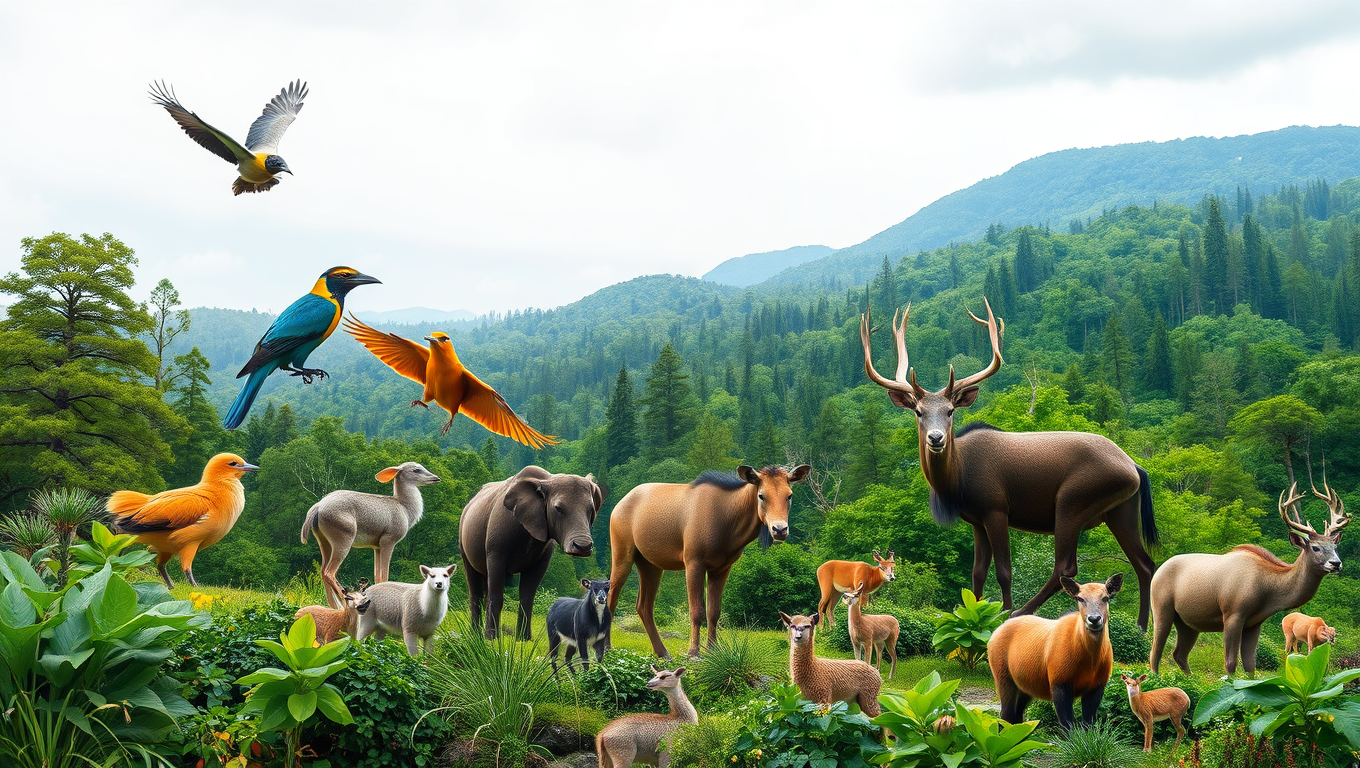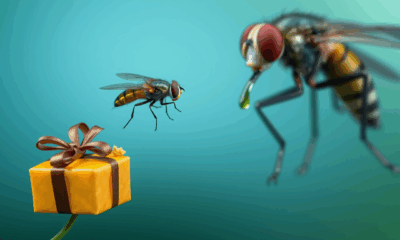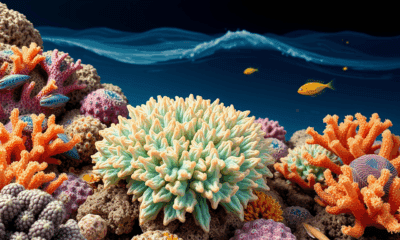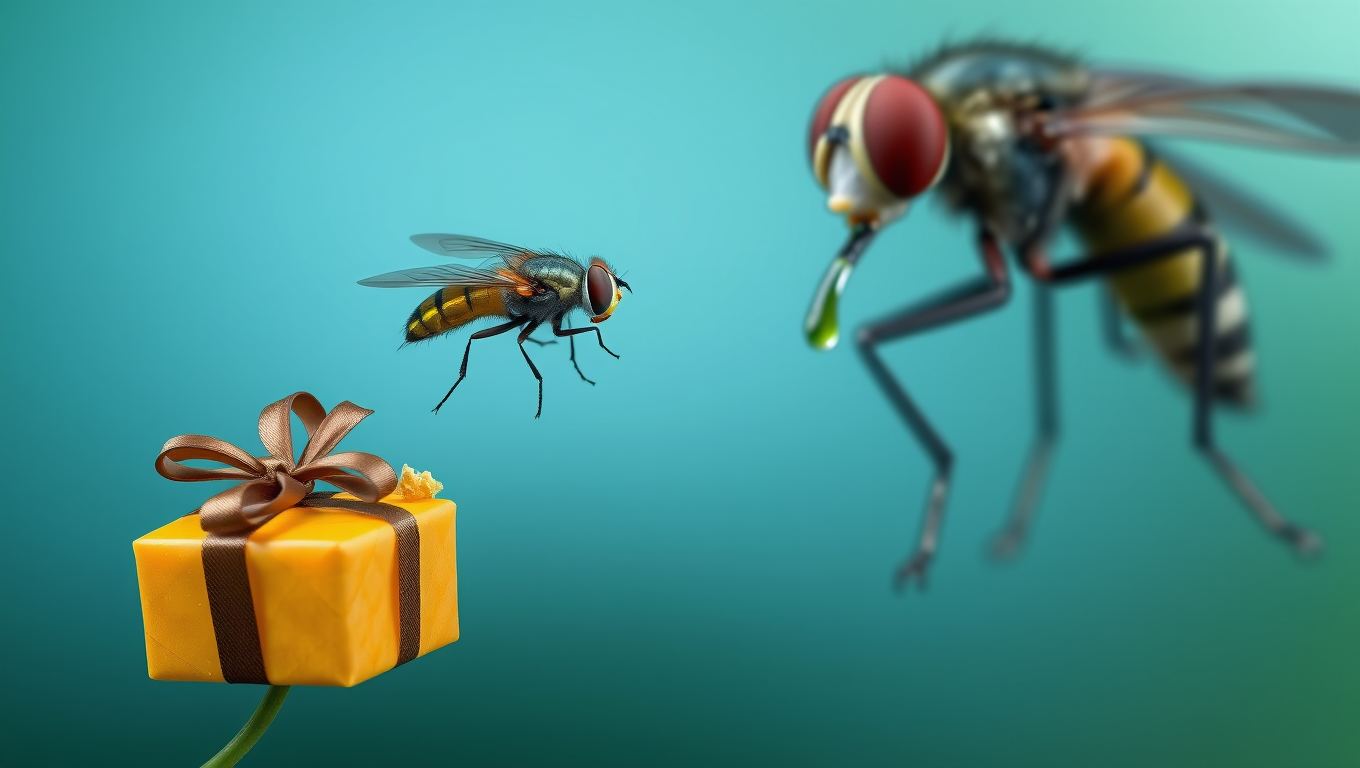While we try to keep things accurate, this content is part of an ongoing experiment and may not always be reliable.
Please double-check important details — we’re not responsible for how the information is used.
Biotechnology and Bioengineering
“Reviving Lost Genetic Diversity: A Transformative Solution for Species Conservation”
Gene editing may hold the key to rescuing endangered species—not just by preserving them, but by restoring their lost genetic diversity using DNA from museum specimens and related species. Scientists propose a visionary framework that merges biotechnology with traditional conservation, aiming to give struggling populations like Mauritius’ pink pigeon a fighting chance against extinction. From agriculture to de-extinction, these tools are already transforming biology—and now, they could transform the future of biodiversity itself.

Behavioral Science
“Rewired for Romance: Scientists Give Gift-Giving Behavior to Singing Fruit Flies”
By flipping a single genetic switch, researchers made one fruit fly species adopt the gift-giving courtship of another, showing how tiny brain rewiring can drive evolutionary change.
Biotechnology and Bioengineering
A Trojan Horse Approach: Bacteria-Delivered Viruses Show Promise in Cancer Treatment
Scientists have engineered a groundbreaking cancer treatment that uses bacteria to smuggle viruses directly into tumors, bypassing the immune system and delivering a powerful one-two punch against cancer cells. The bacteria act like Trojan horses, carrying viral payloads to cancer’s core, where the virus can spread and destroy malignant cells. Built-in safety features ensure the virus can’t multiply outside the tumor, offering a promising pathway for safe, targeted therapy.
Artificial Intelligence
Accelerating Evolution: The Power of T7-ORACLE in Protein Engineering
Researchers at Scripps have created T7-ORACLE, a powerful new tool that speeds up evolution, allowing scientists to design and improve proteins thousands of times faster than nature. Using engineered bacteria and a modified viral replication system, this method can create new protein versions in days instead of months. In tests, it quickly produced enzymes that could survive extreme doses of antibiotics, showing how it could help develop better medicines, cancer treatments, and other breakthroughs far more quickly than ever before.
-

 Detectors9 months ago
Detectors9 months agoA New Horizon for Vision: How Gold Nanoparticles May Restore People’s Sight
-

 Earth & Climate10 months ago
Earth & Climate10 months agoRetiring Abroad Can Be Lonely Business
-

 Cancer10 months ago
Cancer10 months agoRevolutionizing Quantum Communication: Direct Connections Between Multiple Processors
-

 Albert Einstein10 months ago
Albert Einstein10 months agoHarnessing Water Waves: A Breakthrough in Controlling Floating Objects
-

 Chemistry10 months ago
Chemistry10 months ago“Unveiling Hidden Patterns: A New Twist on Interference Phenomena”
-

 Earth & Climate10 months ago
Earth & Climate10 months agoHousehold Electricity Three Times More Expensive Than Upcoming ‘Eco-Friendly’ Aviation E-Fuels, Study Reveals
-

 Agriculture and Food10 months ago
Agriculture and Food10 months ago“A Sustainable Solution: Researchers Create Hybrid Cheese with 25% Pea Protein”
-

 Diseases and Conditions10 months ago
Diseases and Conditions10 months agoReducing Falls Among Elderly Women with Polypharmacy through Exercise Intervention





























